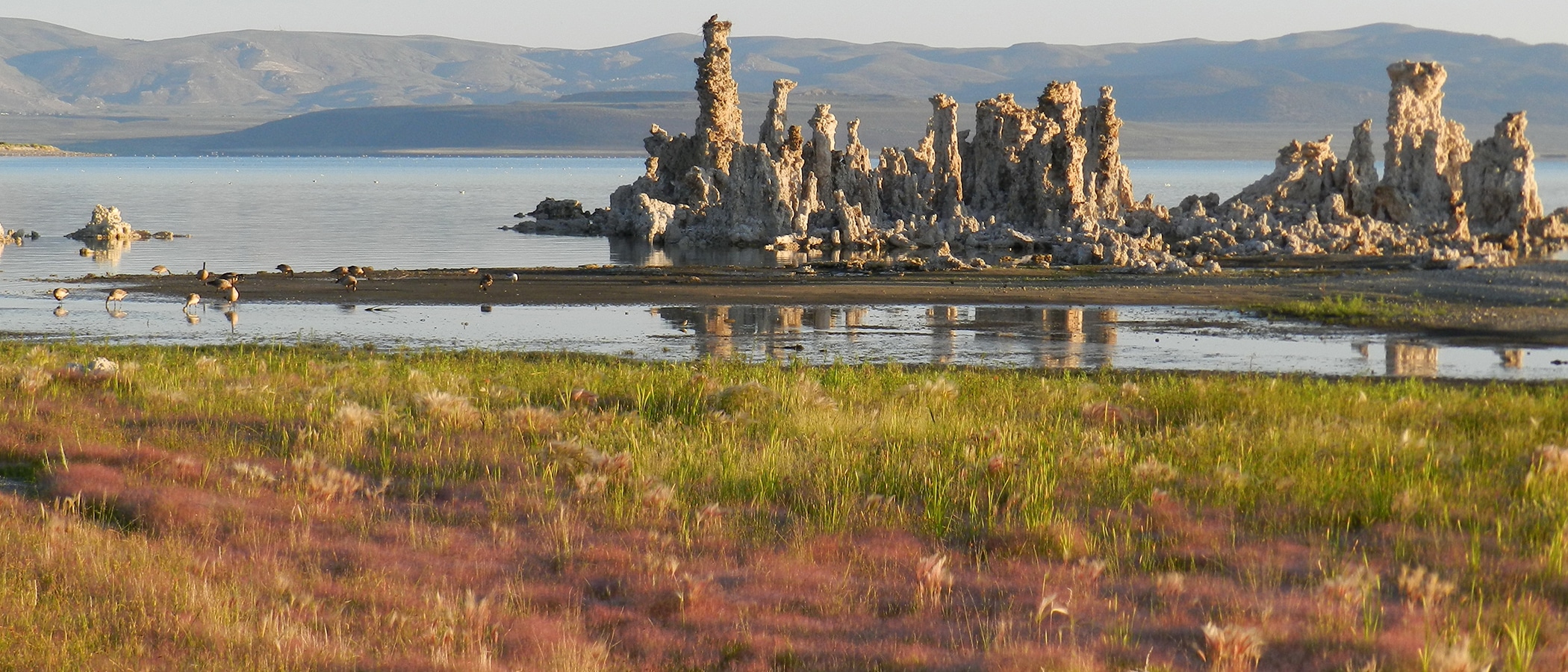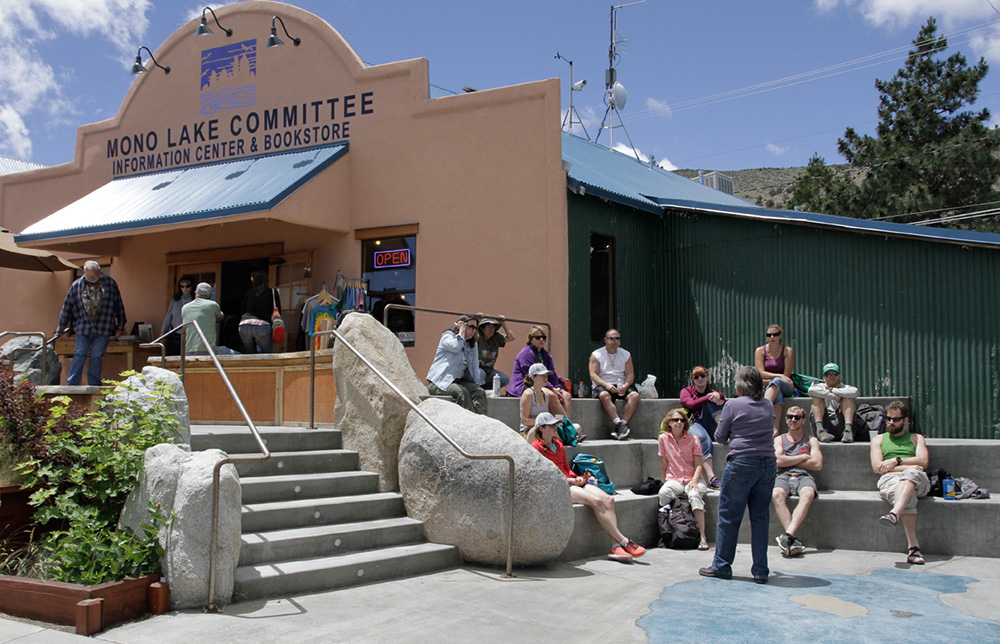

A worldwide fossil fuel divestment movement has begun involving governments, educational institutions, foundations, faith-based groups, individuals, and non-profit organizations. Participants range from Stanford University to the City of Seattle to the Ben & Jerry’s Foundation to Britain’s Prince Charles. We’re pleased to inform members that the Mono Lake Committee is part of the movement.
As inspirational climate leader and Mono Lake Committee member Bill McKibben says, divestment is a simple, direct action that counters “the scary new math of climate change.”
The Committee’s savings account hardly rivals those of big institutions. But similar to our solar panel installation several years ago, we need to continue to do our part to counter carbon pollution—an issue close to home as we grapple with the effects of a changing climate at Mono Lake.
While coal, gas, and oil companies were never a special focus in the Committee’s investments, they were often present in the diversified funds we used to safeguard endowment gifts, member bequests, and other savings. But no longer. The Mono Lake Committee has now fully divested from fossil fuels.
This post was also published as an article in the Summer 2015 Mono Lake Newsletter.

I hope the Committee can now feel good since it divested of those evil fossil fuel companies. However, the Committee would probably not exist without a reliable and relatively inexpensive source of energy, much of which comes from fossil fuel. Without electricity this message would not have been possible. The solar panels on your roof were manufactured in a factory powered by, evil fossil fuel. Yes the climate is changing, it has since the Earth was formed, and will until the Sun explodes. Millions of years ago there was no ice on the Earth. Greenland was once green and it may become green again.
What is your alternative to fossil fuel? I guess we could cut down every tree to heat our homes in winter. How about junking all our cars and relying on horses for transportation? If you think we have a pollution problem now, thing about Los Angeles with 3 million pounds of horse dung to clean up every day. I guess we could all give up using electricity and live in mud huts like they do in the Sudan or Chad. I intend to exclude myself from this option.
Were I the CEO of an evil fossil fuel company, I would encourage divestment by organizations that are out to destroy my company. It would free up my time and allow me to grow the company. The additional benefit is fuel will continue to be available to help people prosper and improve their lives.
I totally agree with Fred Gage.
I think the Mono Lake Committee has done many wonderful things to protect the lake, promote interpretation of the lake, and so on. My family and I joined the Committee because of our travels through the area (by car) and your work. While you are free to do what you think best, and we will continue to support your work, this “divestment” move seems way off point for your core mission and more of a feel good decision.
Glad to hear you’ve divested. It may be a small sum, but the significance is in the action itself.
One question: what took so long?
Divesting is fine with me.
Tho, from comments above, you’ve shaken up a few folks!
It’s OK to shake people up!
Fred Gage is totally correct, great wisdom and articulation
Divestiture by any person (or organization) is simply an investment by another. It does nothing to accelerate the conversion to non-carbon energy resources. What will drive conversion to non-carbon resources is economics. When solar and wind generation and electric cars become more economic than fossil fuels, conversion will occur more rapidly. Of course conversion can be forced upon energy consumers by onerous taxing and regulation of fossil fuels by government bodies and encouraged by actions to subsidize non-fossil energy sources through tax breaks at both the manufacturer and consumer level. But stacking the deck against fossil fuels isn’t fair dealing, and doesn’t change the overall economic balance. It just increases costs for one class of consumers to benefit another. (We just now seem to be waking-up to the fact that owners of electric cars need to pay road taxes just as owners of fossil fueled vehicles do every time they fill-up.
Costs for alternative energy is coming down due to technological advances and economies of scale. On the other hand the fuel efficiency of gas and diesel powered vehicles is steadily increasing as is other major energy uses such as home heating and cooling systems. This is delaying the time when alternative fuels will become more economic.
Also, I am not yet convinced that modern day human use of carbon fuels are significantly responsible for climate change, or that recent short-term climate observations are anything out of the ordinary fluctuation due to sun spots, volcanic activity, etc. Ice ages, changes in sea levels, extended droughts, high levels of atmospheric CO2, temperatures changes, have all occurred repeatedly in the past. (I would suggest anything less than a few thousand years of data are short-term) Even so, I think it is probably a good idea to cut-down on the rapid exploitation of our limited hydrocarbon resources which we have determined in recent years to be much more abundant than was known. That will happen over time as the carbon-less energy technologies continue to develop.
In conclusion, I don’t believe that MLC’s divestiture from fossil fuels does anything to further the primary goal of protecting and restoring Mono Lake.